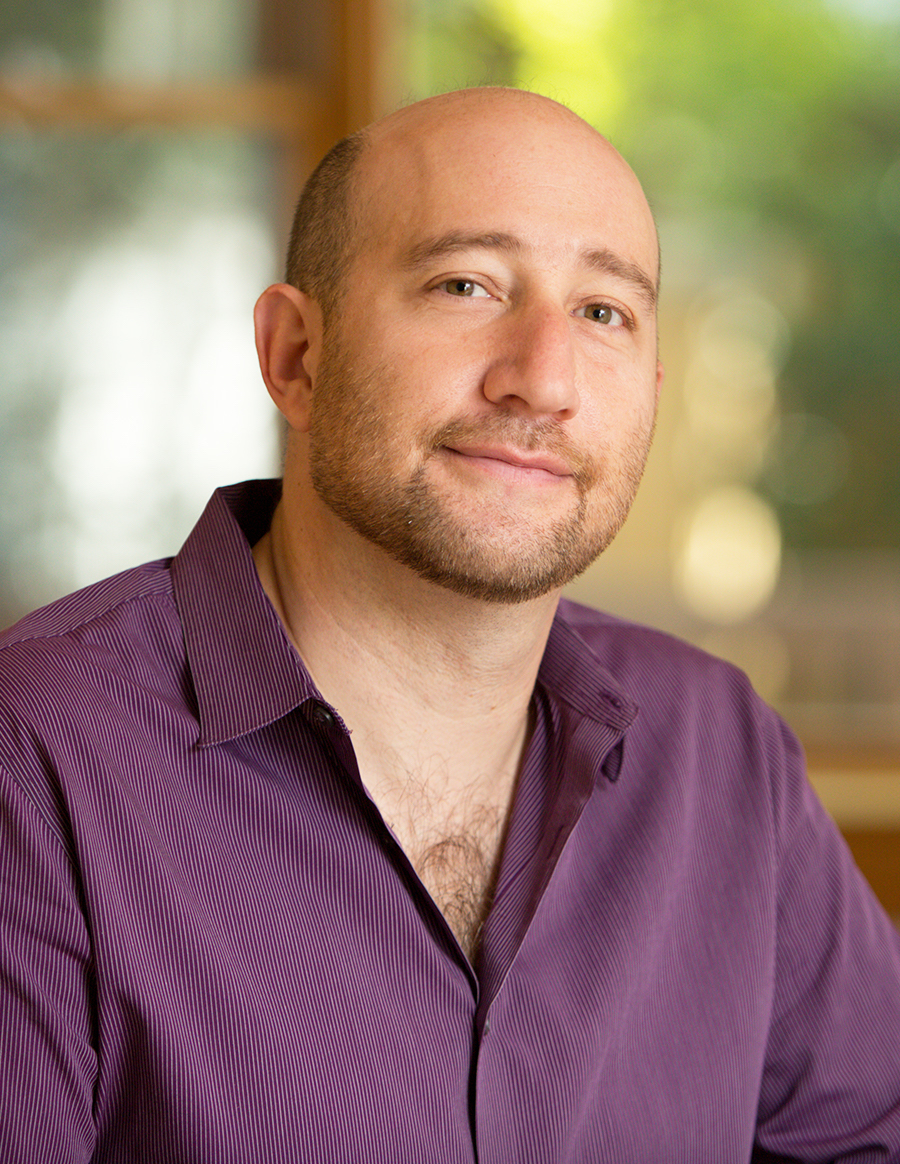Four Questions with Aaron Hamburger

Author: Emmanuel Henderson
June 8, 2023
Lambda Literary is pleased to announce Aaron Hamburger as one of the winners of the 2023 Jim Duggins, PhD Outstanding Mid-Career Novelist Prize.
Dedicated to the memory of author and journalist Jim Duggins, this prize honors LGBTQ-identified authors who have published multiple novels, built a strong reputation and following, and show promise to continue publishing high quality work for years to come. This award is made possible by the James Duggins, PhD Fund for Outstanding Mid-Career LGBTQ Novelists, a fund of the Horizons Foundation, and includes a cash prize of $5,000.
Aaron Hamburger is the author of a story collection titled THE VIEW FROM STALIN’S HEAD which was awarded the Rome Prize by the American Academy of Arts and Letters and nominated for a Violet Quill Award. He has also written three novels: FAITH FOR BEGINNERS, nominated for a Lambda Literary Award, NIRVANA IS HERE, winner of a Bronze Medal from the 2019 Foreword Reviews Indies Book Awards, and his most recent novel HOTEL CUBA, published this May. His writing has appeared in The New York Times, The Washington Post, The Chicago Tribune, The Village Voice, Tin House, Michigan Quarterly Review, Subtropics, Crazyhorse, Boulevard, Poets & Writers, Tablet, O, the Oprah Magazine, Out, The Massachusetts Review, The Bennington Review, Nerve, Time Out, Details, and The Forward. He has also won fellowships from Yaddo, Djerassi, the Civitella Ranieri Foundation, the DC Commission on the Arts and Humanities, and the Edward F. Albee Foundation. He has taught creative writing at Columbia University, the George Washington University, New York University, Brooklyn College, and the Stonecoast MFA Program.
How has access to queer literature/ stories impacted your life as a queer person and shaped you as a writer?
Access to queer literature has been absolutely crucial in impacting my life as both a queer person and a writer. As a young person trying to find my way in the world in the early 90s, I had so many questions and so few resources to find answers. Also, I worried that as an aspiring writer, no one would dare publish queer stories. Then I found the work of writers like Edmund White, James Baldwin, Dale Peck, Armistead Maupin, Rita Mae Brown, and above all the supremely brash and confident Jeannette Winterson. They all taught me that I could be fully myself both in the world and on the page.
What’s your favorite part of the writing process (besides finishing)?
Funny, I HATE being finished because I could edit my work endlessly. In fact when my work is published, I keep finding things I’d like to change, though at that point of course it’s too late. As Paul Valery once said, “A good poem is never finished, only abandoned.” I actually love the process of line-editing, finding these tiny little corners of my work that I can dust up, polish into shape, or where I can make subtle discoveries that tie together looser ends of a story.
What’s your emotional support writing habit?
It’s impossible to be a creative artist and never feel despair. In those moments, my salvation is reading, turning to the writers whose works have inspired me to want to join the conversation. For example, when I reread anything by E. M. Forster, I feel filled with a spirit of hope at the great wisdom and elegance of his prose. Or when I read Manuel Munoz’s magnificent stories, I feel spurred on to try to achieve the same great generosity of spirit with which he imbues his unforgettable characters.
What’s next for you?
I’ve just finished a new novel called Hotel Cuba, which came out this spring. It’s set in Prohibition-era Havana and features a Russian-Jewish refugee who’s trying to get to America while wrestling with private demons as well as trying to understand her own sexual identity. Did I mention she visits a gay bar run by a trans American expatriate and their right-hand man, a tough gay waiter with the meanest left hook in Havana? The inspiration for this story came from real events and people, in particular my grandmother. I found a picture of her from 1922 in full male drag that sparked my curiosity and made me want to recover her story, which had been lost to history. In a way, that sums up the great mission of contemporary queer writers, to fill in the empty spaces in literature with lives and stories that have for far too long been ignored or erased. And to fight for the rights of future generations to read those stories, in schools, in libraries, and in the world!
Thank you again for this great honor, and I look forward to continuing to tell more stories.

